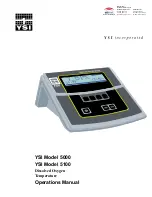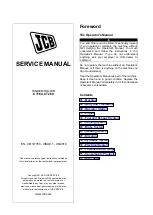
7-22
ApexPro™
2001989-200E
Viewing real-time patient data
The AFIB algorithm feature identifies atrial fibrillation arrhythmias for the
transmitter. When an AFIB event is detected, the
ATRIAL FIB
alarm text is
displayed at the CIC Pro center.
AFIB event patient data is stored for review in the
Graphic Trends
and
Vital Signs
tab sheets.
Alarms
A patient status alarm is triggered when an AFIB arrhythmia is detected. The message
ATRIAL FIB
is displayed in the message area of the display.
NOTE
There is approximately a 90 second delay while the AFIB algorithm verifies the
AFIB arrhythmia condition.
The AFIB alarm defaults to a
Message
alarm level but can be changed under
Arrhythmia Alarm Level
, in the
Telemetry Alarm Control Defaults
tab sheet on the
CIC Pro center. How the monitor responds to each condition is determined by the
alarm level to which the AFIB arrhythmia detection has been assigned. When set for
Advisory
or greater, AFIB alarms will be recorded and displayed in the alarm area on
the CIC Pro center.
NOTE
AFIB alarms can only be adjusted at the CIC Pro center. If AFIB is not available/
enabled at a bedside monitor in
Combo
mode, you will not be able to
immediately adjust the alarm. You must discharge the patient from the bedside
monitor, adjust the alarm setting at the CIC Pro center and then admit the patient
at the bedside monitor.
ST analysis
The patient’s most dominant, normal beat is used for ST measurement. This beat is
identified by the arrhythmia analysis program. Turn ST
ON
to display the numerics
calculated for ST at the CIC Pro center.
GE identifies the ST segment of the QRS complex as beginning at the J point and
ending 60 milliseconds following the J point in
Adult
mode. The ST measurement
factory defaults are:
Adult
— J+ 60ms
0–2 years
— J+ 30ms
3–10 years
— J+ 40ms
11–13 years
— J+ 50ms
The ST numeric displayed (millimeters) indicates either a positive or negative
elevation in relation to the isoelectric reference point (which is also determined by the
arrhythmia program and the patient’s age).
When ST is on, numerics are displayed under each ECG lead label on the screen. (A
negative deflection is preceded by a minus sign.) These numerics are updated about
every 15 seconds.
Summary of Contents for ApexPro
Page 13: ...2001989 200E ApexPro 1 1 1 Introduction ...
Page 31: ...2001989 200E ApexPro 2 1 2 Equipment overview ...
Page 36: ...2 6 ApexPro 2001989 200E Equipment overview ...
Page 37: ...2001989 200E ApexPro 3 1 3 Equipment setup ...
Page 50: ...3 14 ApexPro 2001989 200E Equipment setup ...
Page 51: ...2001989 200E ApexPro 4 1 4 System setup ...
Page 69: ...2001989 200E ApexPro 5 1 5 Alarms ...
Page 86: ...5 18 ApexPro 2001989 200E Alarms ...
Page 87: ...2001989 200E ApexPro 6 1 6 Managing patients ...
Page 109: ...2001989 200E ApexPro 7 1 7 Viewing real time patient data ...
Page 144: ...7 36 ApexPro 2001989 200E Viewing real time patient data ...
Page 145: ...2001989 200E ApexPro 8 1 8 Viewing stored patient data ...
Page 166: ...8 22 ApexPro 2001989 200E Viewing stored patient data ...
Page 167: ...2001989 200E ApexPro 9 1 9 Printing ...
Page 175: ...2001989 200E ApexPro A 1 A Abbreviations and symbols ...
Page 183: ...2001989 200E ApexPro B 1 B Customized defaults worksheet ...
Page 186: ...B 4 ApexPro 2001989 200E Customized defaults worksheet ...
Page 187: ...2001989 200E ApexPro C 1 C Maintenance ...
Page 194: ...C 8 ApexPro 2001989 200E Maintenance ...
Page 195: ...2001989 200E ApexPro D 1 D Troubleshooting ...
Page 206: ...D 12 ApexPro 2001989 200E Troubleshooting ...
Page 207: ...2001989 200E ApexPro E 1 E Technical specifications ...
Page 214: ...E 8 ApexPro 2001989 200E Technical specifications ...
Page 217: ......
















































